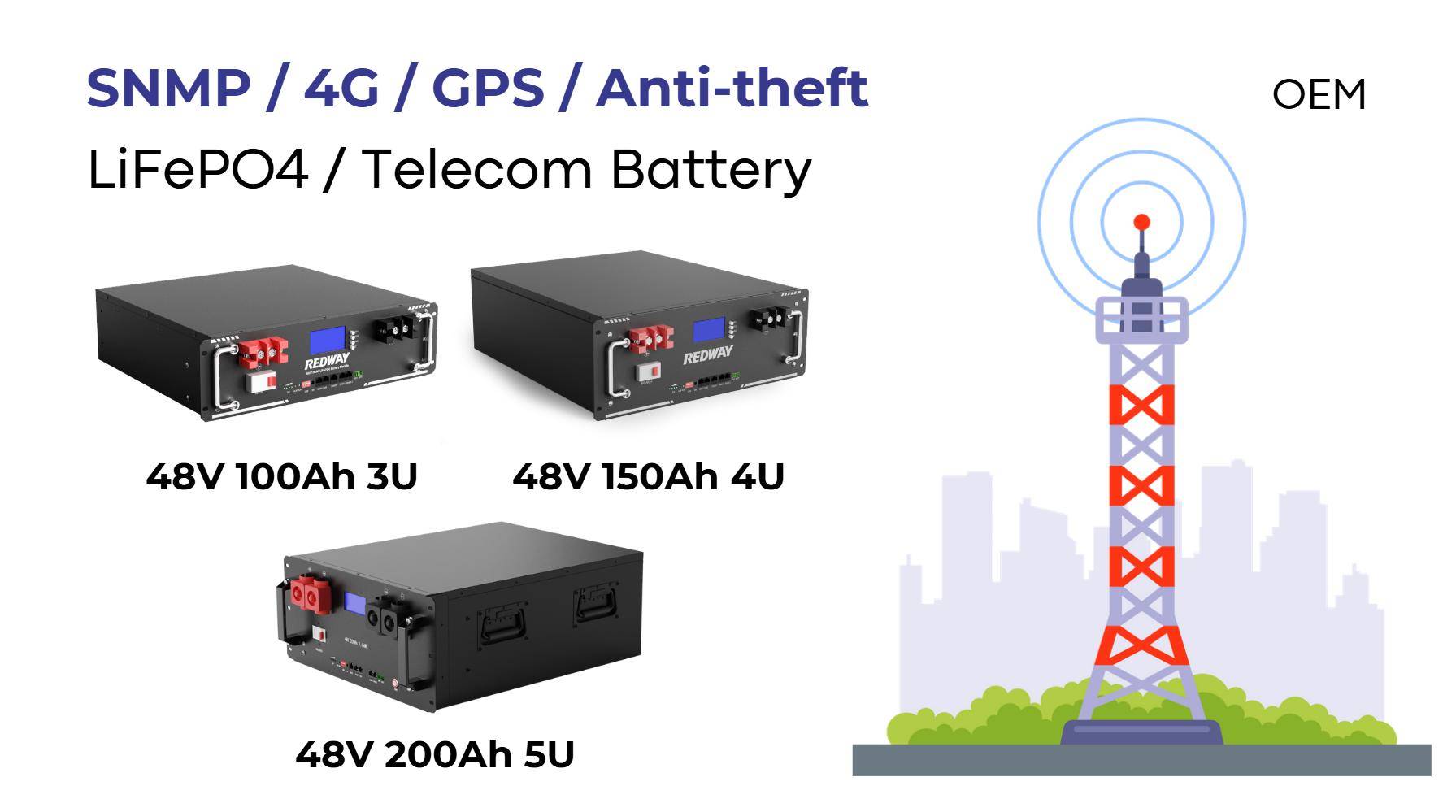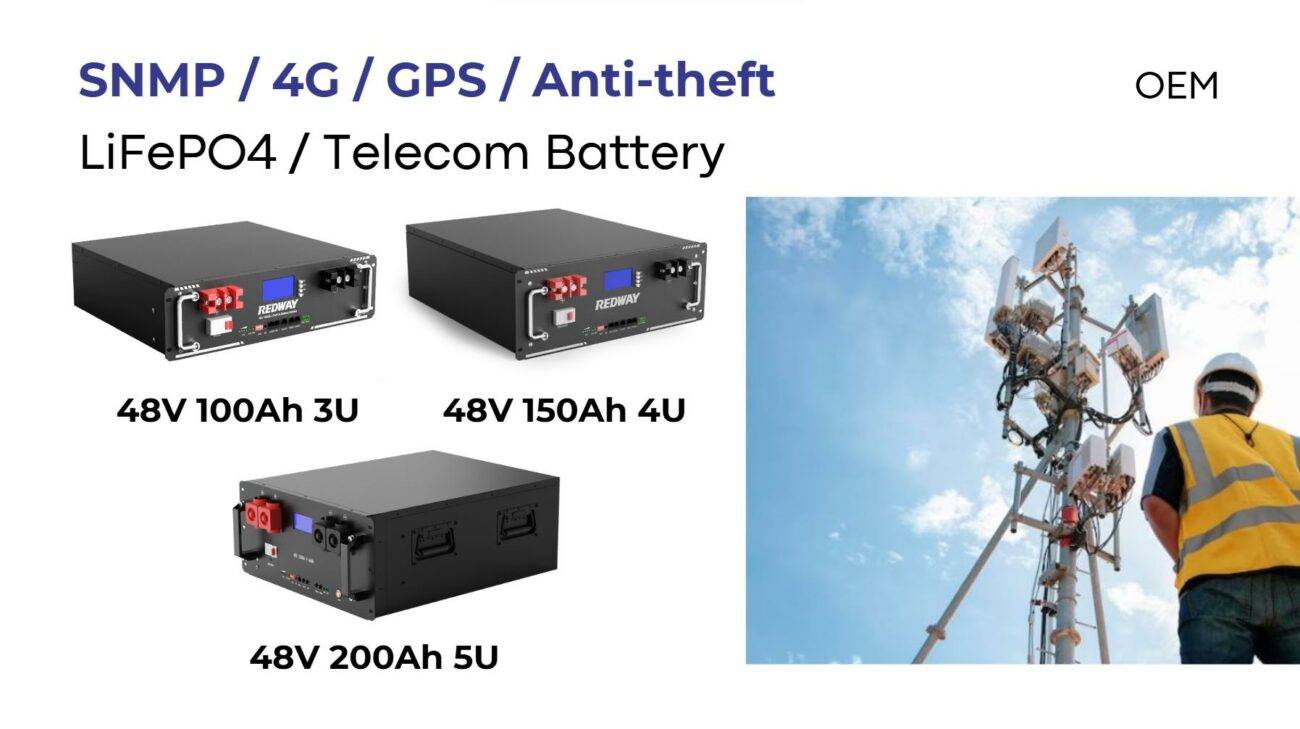
Blog
Why Are Telecom Lithium Batteries Experiencing Surging Demand?

The growing demand for telecom lithium batteries stems from their superior energy density, longer lifespan, and cost efficiency compared to traditional lead-acid batteries. As telecom networks expand into remote areas and 5G infrastructure accelerates, lithium batteries provide reliable backup power, reduced maintenance, and environmental benefits, making them essential for modern telecommunication systems.
Why Are Telecom Companies Switching to Lithium Batteries?
Telecom companies are adopting lithium batteries due to their lightweight design, faster charging, and ability to operate in extreme temperatures. Lithium batteries also reduce operational costs by 30-50% over their lifespan, aligning with global sustainability goals by minimizing carbon footprints and hazardous waste.
How Do Lithium Batteries Outperform Traditional Lead-Acid Batteries?
Lithium batteries offer 3-5 times longer cycle life, 50% higher energy density, and 90% efficiency versus 70-85% for lead-acid. They require no maintenance, charge twice as fast, and perform reliably in temperatures from -20°C to 60°C, making them ideal for off-grid telecom towers and harsh environments.
| Feature | Lithium Batteries | Lead-Acid Batteries |
|---|---|---|
| Cycle Life | 3,000-5,000 cycles | 500-1,200 cycles |
| Energy Density | 150-200 Wh/kg | 30-50 Wh/kg |
| Charge Time | 2-4 hours | 8-10 hours |
What Market Trends Are Accelerating Lithium Battery Adoption?
Key trends include 5G network rollouts, renewable energy integration, and government incentives for green energy. The global telecom lithium battery market is projected to grow at a 15.2% CAGR from 2023 to 2030, driven by demand for energy storage in remote towers and hybrid power systems.
Recent developments in solar-Li-ion hybrid systems have enabled telecom operators to reduce diesel consumption by 70% in off-grid locations. Government programs like India’s National Digital Communications Policy now mandate minimum renewable energy usage in telecom infrastructure, creating US$2.1 billion in lithium battery opportunities through 2027. Major carriers like Vodafone and AT&T have committed to 100% lithium-based backup systems by 2030, with pilot projects showing 92% reduction in power-related tower outages.
Which Challenges Do Lithium Batteries Face in Telecom Applications?
High upfront costs (2-3x lead-acid), supply chain bottlenecks for raw materials like cobalt, and safety concerns around thermal runaway remain challenges. Standardizing recycling processes and improving fire-suppression systems in battery cabinets are critical to addressing these barriers.
How Does Lithium Battery Sustainability Impact Telecom ESG Goals?
Lithium batteries support ESG goals through 95% recyclability, 40% lower CO2 emissions over their lifecycle, and compatibility with solar/wind hybrids. Their use reduces diesel generator reliance, cutting annual tower emissions by up to 12 metric tons CO2 equivalent per site.
Know more:
Why Is Lithium the Future of Telecom Batteries
What Are the Latest Innovations in Telecom Lithium Battery Technology?
Why Are Telecom Lithium Batteries Experiencing Surging Demand?
What Are the Latest Regulatory Changes for Telecom Batteries
Why Are Telecom Companies Switching to Lithium Batteries?
What Are the Key Upcoming Events for Telecom Battery Technology
What Cost Savings Can Operators Expect with Lithium Batteries?
Despite higher initial costs, lithium batteries reduce total ownership costs by 45% through 10+ year lifespans, zero maintenance, and 60% lower energy waste. Operators save $3,000-$5,000 annually per tower on fuel and maintenance compared to lead-acid systems.
Where Are Lithium Batteries Making the Biggest Regional Impact?
Asia-Pacific leads adoption (42% market share) due to 5G expansion in China and India’s rural telecom growth. Africa sees rapid uptake for off-grid solar hybrid sites, while Europe prioritizes lithium for GDPR-compliant backup power in urban data hubs.
In Southeast Asia, Malaysia’s Jendela program has deployed 15,000 lithium-powered towers since 2021, achieving 99.8% power availability during monsoon seasons. African operators like MTN Nigeria report 40% lower operational expenses after switching to lithium-solar combos in 2,500 remote sites. European regulations now require 8-hour backup capacity for critical telecom infrastructure, with lithium systems occupying 60% less space than equivalent lead-acid installations in urban micro-sites.
“Lithium batteries are revolutionizing telecom energy management. Their integration with AI-driven power systems allows real-time load balancing, reducing outages by 80% in our Nigerian tower deployments. However, the industry must collaborate on recycling ecosystems to avoid a 500,000-ton battery waste crisis by 2030.”
— Dr. Elena Torres, CTO of GreenPower Solutions
Conclusion
The telecom sector’s shift to lithium batteries reflects a strategic alignment with reliability, sustainability, and digital transformation needs. While challenges persist, advancements in solid-state lithium tech and circular economy models will likely cement lithium’s dominance in next-gen telecom infrastructure.
FAQ
- How long do telecom lithium batteries last?
- 8-15 years vs 3-6 years for lead-acid, with 3,000-5,000 charge cycles at 80% depth of discharge.
- Can lithium batteries withstand extreme weather?
- Yes, advanced LiFePO4 variants operate at -40°C to 75°C, ideal for Arctic towers and desert sites.
- Are lithium batteries safer than lead-acid?
- Modern BMS (Battery Management Systems) prevent overcharging/overheating, reducing fire risk to 0.001% per 10,000 installations.













